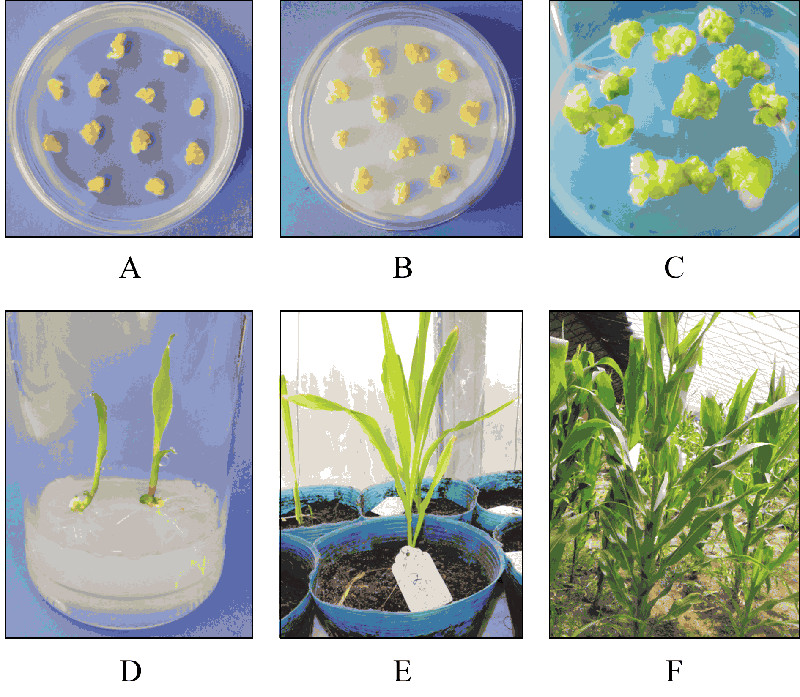Zea mays, also known as maize or corn, is not only an important model plant for studying plant genetics, genomics, and molecular biology, but also a major cereal crop worldwide with high economic values. Following the development and application of genetic modification techniques in modern agriculture, transgenic maize products conferring herbicide and/or insect resistance, drought tolerance or high carbohydrate content aiming for increasing the yield of maize production have been created.
The preferred method for delivery of genes into maize is via Agrobacterium-mediated transformation. Freshly isolated immature embryos are cocultivated with Agrobacterium carrying vectors with desired genes. The transformed explants are then induced into calli which finally regenerate into new seedlings. This method can generate large numbers of transgenic maize individuals containing single or relatively low transgene copy numbers. Aside from immature embryos, the Agrobacterium-mediated transformation method can also be applied with other tissues such as freshly dissected shoot tip or multi-shoot cultures, which is suitable for a lot of genotypes.
 Figure 1. Agrobacterium-mediated transformation of Zea mays (Zhou et al., 2011)
Figure 1. Agrobacterium-mediated transformation of Zea mays (Zhou et al., 2011)
As a proven leader for the plant genetic transformation technologies, Lifeasible delivers consistent, high-quality services with optimized protocols adapting to specific customer requirements. Our services follow the highest standards and guarantee the best quality for our customers.
In order to obtain optimal transformation efficiency, we provide a wide variety of maize genotypes, Agrobacterium strains, cloning vectors, as well as tissue culture medium compositions for you to choose from:
Reference:
Lifeasible has established a one-stop service platform for plants. In addition to obtaining customized solutions for plant genetic engineering, customers can also conduct follow-up analysis and research on plants through our analysis platform. The analytical services we provide include but are not limited to the following:
July 13, 2024